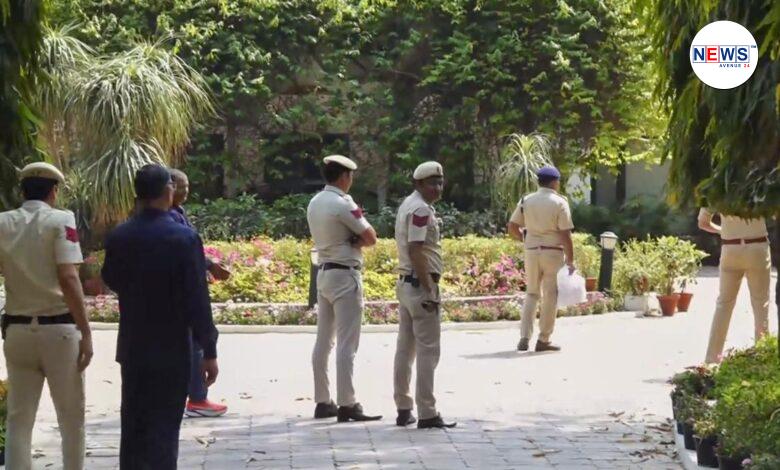
Police inspect judge Yashwant Varma’s house, Supreme Court agrees to hear petition for FIR
AMID THE row over the discovery of cash during a fire on March 14 at the New Delhi home of Justice Yashwant Varma who has since been moved out of the Delhi High Court, a police team visited the house of the judge Wednesday and analysed CCTV footage from the day of the incident.
The police team, led by DCP (New Delhi) Devesh Mahla, reached the 30, Tughlak Crescent bungalow at around 1.30 pm and spent nearly two hours there.
DCP Mahla was accompanied by Tughlak Road ACP Virender Jain and two head constables. Sources said the team also visited the store room where the fire broke out and the lawn where some charred items had been placed, and recorded videos.
The incident site, sources said, had been “preserved” in the presence of a court official.
“The team also spoke to Justice Varma’s family members and staff, including his personal assistant who made the first call to police regarding the fire on March 14,” a senior police officer said.
Hours after the March 14 incident, police had made a daily diary entry at the Tughlak Road police station, but were denied entry to the house the next morning by the security staff there, sources said.
The police, meanwhile, are also trying to ascertain the cause of the fire. Prima facie, it is suspected that the fire was caused due to a short circuit.
As per protocol, police will seek a report from power department officials and forensic experts to ascertain the cause.
On Tuesday, a three-member committee of judges, constituted by the Supreme Court, visited Justice Varma’s house.
On Wednesday, a bench led by Chief Justice of India Sanjiv Khanna said it had listed for hearing a petition seeking the registration of an FIR against Justice Yashwant Varma over the discovery of cash.
“Your matter has been listed,” CJI Khanna told Advocate Mathews Nedumpara who made an oral request that it be heard urgently. The CJI asked him not to make any public statements, adding that he would get the date of hearing from the registry.
Nedumpara told the bench that “the only thing (needed to be done is that an) FIR has to be registered against the judge”. He complimented the CJI for making public the communication and other documents related to the controversy.
“Your Lordship has done a wonderful job… the publishing of the video, the burnt notes,” he said.
Another petitioner in the matter said had so much money been found with any businessman, agencies like the Enforcement Directorate and the Income Tax department would have gone after him.
The Supreme Court, in its 1991 ruling in K Veeraswami Vs. Union of India, held that prior approval of the CJI is mandatory for registering a criminal case under Section 154 of the Code of Criminal Procedure against a sitting judge of a High Court or Supreme Court.
The petitioner has challenged this. “The consequence of the aforesaid direction, that no FIR shall be filed, was certainly not present in the minds of the Hon’ble judges. The said direction creates a special class of privileged men/women, immune from the penal laws of the land. Our judges, except for a minority, and not a microscopic one, are men and women of the greatest of erudition, integrity, learning and independence. Judges do not commit crimes. But incidents where judges are caught red-handed… being involved in POCSO and other cases cannot be denied. The judgement in K Veeraswami’s case, to the knowledge of the petitioners, has stood in the way of an FIR being registered even in an offence involving POCSO,” the petition stated.
Questioning the power of the committee constituted by the CJI to inquire into the incident, the petition said only the police can investigate it.
“The resolution of the Collegium investing the committee power to conduct such an investigation is rendered void ab initio inasmuch as the Collegium cannot confer jurisdiction upon itself to order so where the Parliament or the Constitution has conferred none,” it stated.





